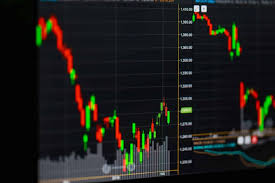
Understanding Forex Trading Signals: A Comprehensive Guide
Forex trading signals can be seen as navigational tools in the expansive ocean of currency trading. They provide traders with insights and recommendations on when to buy or sell currency pairs. With the advent of technology, these signals have become increasingly sophisticated, allowing traders to make informed decisions based on real-time data analysis. In this guide, we will delve into what Forex trading signals are, how they work, and the different types available, alongside some practical tips and a mention of the forex trading signals Best South African Brokers for executing your trades effectively.
What are Forex Trading Signals?
Forex trading signals are essentially trade recommendations that are generated based on technical analysis, fundamental analysis, or a combination of both. A signal may indicate when to enter a trade, exit a trade, or set a stop-loss point. These signals can be generated manually by experienced traders or automatically via algorithms and trading robots.
How Do Forex Trading Signals Work?
Forex trading signals work by providing traders with actionable recommendations. These signals are derived from various methodologies, such as:
1. **Technical Analysis**: This involves using price charts and various technical indicators to predict future price movements. Popular indicators include Moving Averages, Relative Strength Index (RSI), and Fibonacci Retracement levels.
2. **Fundamental Analysis**: This examines economic indicators, geopolitical events, and other news that might affect currency values. Key events include interest rate announcements, employment reports, and inflation data.
3. **Sentiment Analysis**: This approach gauges market sentiment through various sources, like news and social media, indicating whether traders are bullish or bearish on a currency pair.
Types of Forex Trading Signals
There are several types of Forex trading signals, including:
1. Free Signals

Free signals are widely available online, often provided by brokers or trading websites. While they can be useful for novice traders, the quality and accuracy tend to vary significantly.
2. Paid Signals
Paid signals are typically more reliable as they are generated by professional traders or reputable software programs. Traders usually subscribe to these services for a monthly fee, gaining access to detailed forecasts and indicators.
3. Automated Signals
Automated trading signals come from trading algorithms or robots that analyze market data at high speed and can execute trades automatically based on pre-defined criteria. These can be particularly appealing for traders who may not have the time to monitor the markets consistently.
The Benefits of Using Forex Trading Signals
Utilizing Forex trading signals can offer several advantages, including:
- Time-Saving: Signals remove the need for constant analysis, allowing traders to focus on executing trades.
- Informed Decisions: With expert analysis backing the signals, traders can enter and exit trades with greater confidence.
- Improved Strategies: By following specific signals, traders can develop and refine their trading strategies over time.
Choosing the Right Forex Trading Signals
Not all Forex trading signals are created equal. Here are some tips for selecting the best signals:

1. Credibility of Signal Providers
Research the credibility and track record of the signal provider. Look for reviews or performance statistics to verify their reliability.
2. Transparency
Choose services that offer transparency in their methodologies. Understanding how signals are generated will help in assessing their reliability.
3. Free Trials
If possible, opt for services that provide free trials. This allows you to test their signals before committing to a subscription.
Common Mistakes to Avoid When Trading Forex Signals
While trading signals can be beneficial, there are common pitfalls to be aware of:
- Over-reliance on Signals: While they can guide decisions, it’s essential to apply your own analysis and judgment as well.
- Ignoring Market Conditions: The market can change rapidly; don’t ignore prevailing market conditions when trading based on signals.
- Emotional Trading: Don’t allow emotions to dictate your trading decisions; stick to your strategy and the signals provided.
Conclusion
Forex trading signals can be an invaluable resource for traders looking to navigate the complexities of the foreign exchange market. Whether you choose free, paid, or automated signals, understanding their function and how to implement them effectively is key to successful trading. With the right approach and a solid strategy, you can leverage these signals to make informed trading decisions and maximize your potential profits.
Happy trading!
